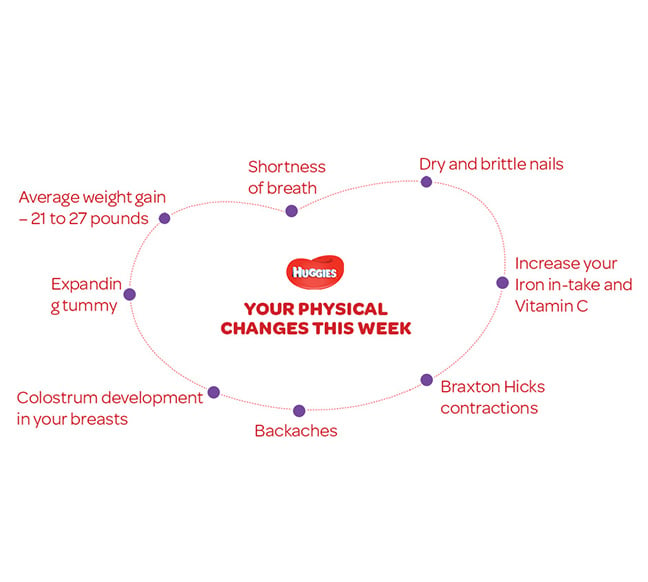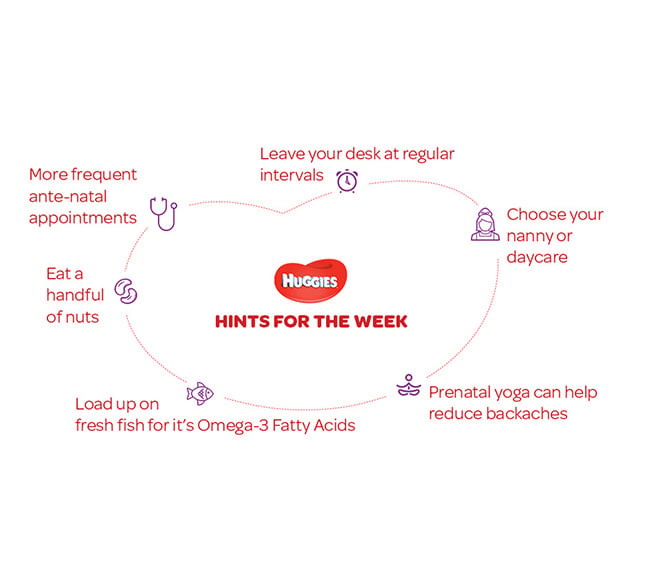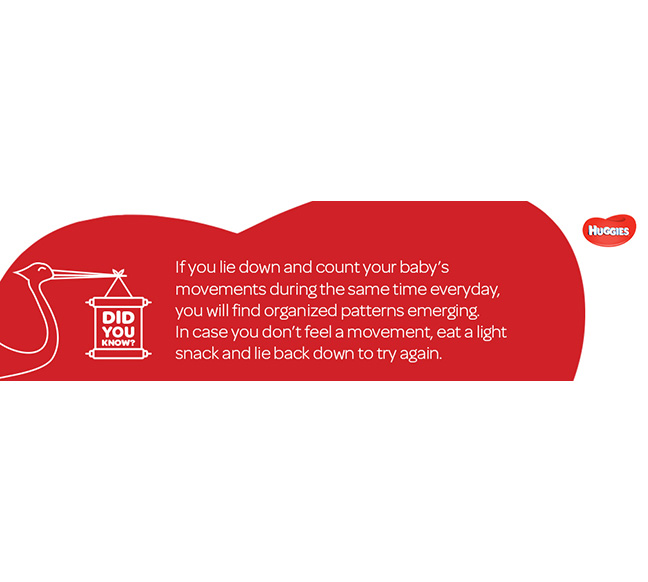All five of the baby’s senses are fully developed at 31 weeks. He is also getting smarter, while you may find yourself to be so forgetful! Your baby is around 46cms this week, only 7cms less than the average length of a baby born at term. REM (Rapid Eye Movement) is a stage of sleep which is so important that some researchers say humans have 3 states of being, awake, asleep and in REM sleep.
The connections or synapses in your baby's brain are forming by the millions and are helped by the stimulation they receive in their insulated little world. Your voice, household noise, filtered light, movement and music will all help these vital connections to form.
Your physical changes this week

This week, watch out for Braxton Hicks contractions that are common towards the end of the pregnancy and often referred to as “false-labour”, lasting only about 30 seconds. Frequent contractions, maybe a sign of pre-term labour so make sure to call your doctor.
Watch out for any leakage from your breasts. The yellow liquid called Colostrum or “premilk” is the baby’s first food and your body is getting ready for the big arrival! Many women develop stretch marks in the 3rd trimester though little can be done to stop them from forming. It's very important to do what you can to boost the iron stores in your body which may be depleting at this stage.
Hints of the week

- If you are dying to know what your baby looks like in your 31 weeks pregnant belly, then a 3D/4D ultrasound at this stage is the perfect time! You may be able to see your little one blinking, thumb sucking and maybe even smiling or frowning!
- It is likely you'll need to see your doctor monthly to assess your baby's growth and how you are going. These visits can be very exciting even if they may seem a little repetitive.
- Omega-3 Fatty Acids will directly impact on your baby's brain and eye health, so oily fish like sardines, salmon and even prawns are a good source. Aim to eat a handful of nuts every day and don't shy away from butter, margarine and even a little cream.
- Getting up and going for a walk from your desk will help your lower limbs push your blood back through your general circulation. Aim to walk for exercise every day as well.




